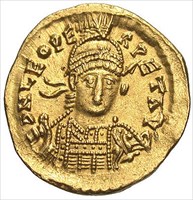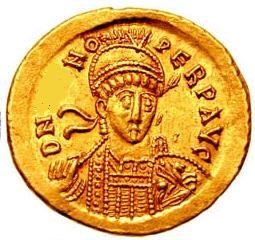Tasavallan aikaan Roomaan kehittyi erityinen virka-aatelisto
(nobiles), senaattorisääty, joka pyrki saamaan kaikki virat
itselleen ja estämään ulkopuolisten pääsy virkoihin. Silloin
tällöin joku kyvykäs ei-aatelinen pääsi nousemaan senaattoriksi,
mutta se oli harvinainen poikkeus. Valtansa oikeutuksen nämä
rikkaat maanomistajasuvut perustelivat polveutumisellaan jumalista
– heillä oli täten ”suora yhteys” jumaliin, joten
he pystyivät tulkitsemaan jumalien tahtoa ja olivat päteviä anomaan
jumalilta suosiota.
Roomalaisen virkamiehen ura oli eräänlainen portaikko, jota
pitkin virkamies pyrki nousemaan vallan huipulle eli konsuliksi.
Konsulin virka kesti vain vuoden, mutta valtaa oli sitäkin enemmän.
Konsulit toimivat puheenjohtajina senaatin istunnoissa ja
kansankokouksissa, sodassa he olivat ylipäälliköitä ja oikeudessa
ylimpiä tuomareita.
Korkeimmat virkamiehet valitsi kansankokous, jossa kansa
jaettiin varallisuuden mukaan siten, että rikas vähemmistö sai
antaa äänistä enemmistön. Kansankokous saattoi vain hyväksyä tai
hylätä virkamiehen valmisteleman ehdotuksen.
Virkamiesten toimia valvoi senaatti. Senaatin muodollinen asema
oli lähinnä neuvoa-antava, sillä siltä puuttui lainsäädäntö ja
toimeenpanovalta. Senaatin jäsenet olivat kuitenkin entisiä
virkamiehiä, joten senaatin valta oli loppujen lopuksi samaa valtaa
jota aateliset virkamiehet käyttivät. Keisarikaudella keisari oli
tämän ”herraseuran” pysyvä puheenjohtaja.
Virka-aatelin valta säilyi keisariajalle saakka, jolloin tämä
vallan vähitellen valtasivat liiketoimillaan rikkaaksi tulleet
kauppias- ja pankkiirisivut (ritarisääty – equites) sekä 200
luvulta lähtien myös sotilaat.
The Roman Republic was governed by an aristocracy, the
patricians, who could trace their ancestry back to the early
history of the kingdom. Over time, the laws that allowed these
individuals to dominate the government were repealed, and the
result was the emergence of a new aristocracy which depended on the
structure of society, rather than the law, to maintain its
dominance.
The consul of the Roman Republic was the highest ranking
ordinary magistrate. Consuls had supreme power in both civil and
military matters. While in the city of Rome, the consuls were the
head of the Roman government. They would preside over the senate
and the assemblies. While abroad, each consul would command an
army. His authority abroad would be nearly absolute.
The Roman Senate (Senatus) from the latin Senex (for elder or
council of elders) was a deliberative governing body. Its important
to note the difference between deliberative and legislative, in
that the Senate itself didn't propose legislation; though
magistrates with the Senate, such as Consuls, did
Despite its lack of actual law making power, the Senate held
considerable authority in Roman politics. As the representative
figurehead of Rome, it was the official body that sent and received
ambassadors on behalf of the city, appointed officials to manage
and govern provinces, declared war and negotiated peace, and
appropriated funds for various projects such as public building
construction. Appointments of military Legates, and the overall
oversight of Roman religious practices remained in the control of
the Senate as well.
Lopulliset koordinaatit ovat: N 61° pp.xxx, E 23° ii.yyy
Final coordinates are: N 61° pp.xxx, E 23° ii.yyy
Päättele minuutit desimaaleineen seuraavista kuvasarjoista
Try to deduce minutes and decimals from the pictures
pp =  II -
II -  I - 1
I - 1
ii =  I -
I -  IV - 2
IV - 2
xxx =  III +
III +  V -
V -  III
III
yyy =  I +
I +  XII *
XII *  VI +
VI +  II - 1
II - 1
